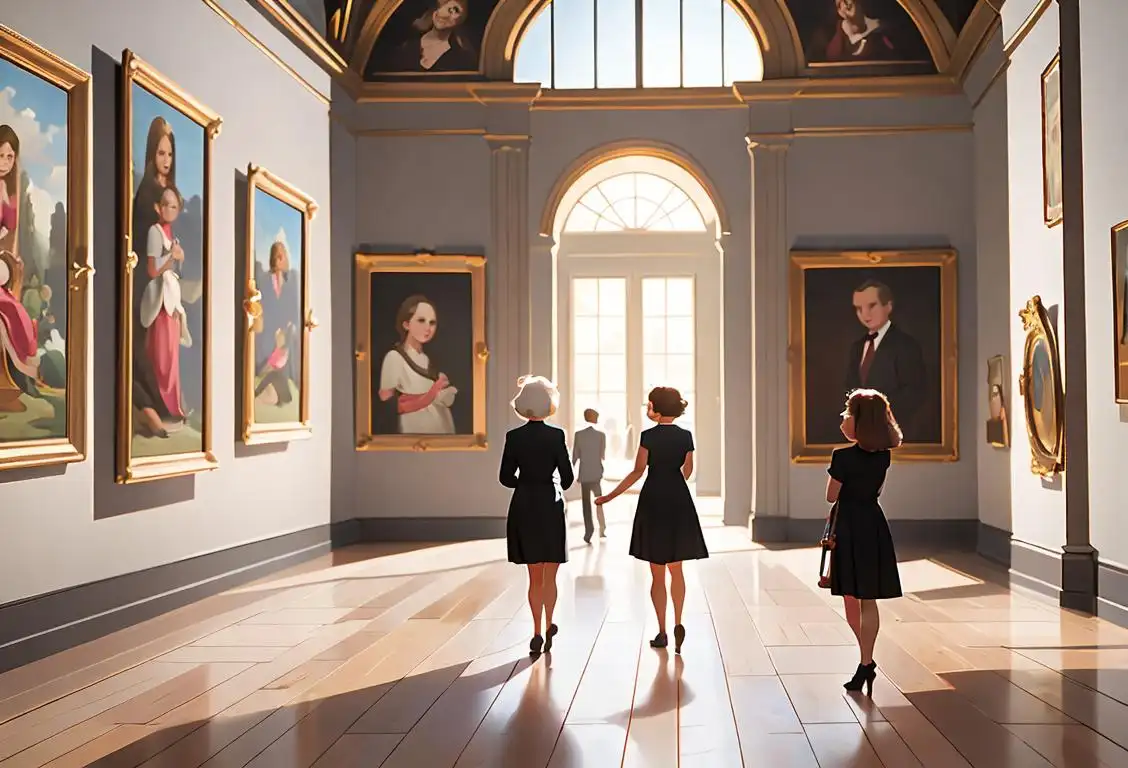National Museum Day

Welcome to National Museum Day, the day when we all become cultural connoisseurs and history buffs! Get ready for a day packed with treasure hunting, art appreciation, and learning about all things fascinating. Whether you're a lover of ancient artifacts, a fan of modern masterpieces, or just someone looking for a fun and educational outing, National Museum Day has something for everyone. So grab your walking shoes, don your fancy spectacles, and let's embark on an adventure through the halls of knowledge!
When is Museum Day?
It's national museum day on the 3rd September.
The Internet History of National Museum Day
Did you know that National Museum Day has a rich history that dates back even before the internet existed? It has been celebrated since 1977 when it was established by the International Council of Museums (ICOM). The goal was to raise awareness about the importance of museums and their role in preserving our cultural heritage.
Since then, National Museum Day has grown into a global celebration, with museums around the world opening their doors for free or offering special exhibits and events. It's a day when people from all walks of life can come together to explore and appreciate the wonders of our collective human history.
Fun Facts about Museums
Did you know that the largest museum in the world is the Louvre Museum in Paris? It houses over 35,000 works of art, including the famous painting, Mona Lisa. The museum is so massive that it would take you around 100 days to see each object for just 30 seconds!
Another fun fact: the word 'museum' comes from the Greek word 'mouseion' which means 'a place dedicated to the Muses.' The Muses were the nine goddesses of the arts and sciences in Greek mythology. So, next time you visit a museum, remember that you're stepping into a place dedicated to the inspiration and celebration of creativity!
History behind the term 'Museum'
300 BCE
Ancient Origins
Museums have their roots in ancient civilizations. The term 'museum' stems from the Greek word 'mouseion,' which referred to a temple or shrine dedicated to the Muses, the nine goddesses of the arts and sciences. These early temples housed beautiful artifacts, sculptures, and works of art, establishing a precedent for future collections.
273 BCE
The First Museum
The Library of Alexandria in Egypt is considered the first official museum in the world. Founded in 273 BCE, it served as a repository for knowledge and housed numerous scholarly works and artifacts collected from different parts of the ancient world. This marked a significant shift where a specific building was created to house a collection for public viewing and study.
79 CE
Pompeii's Legacy
The eruption of Mount Vesuvius in 79 CE not only devastated the city of Pompeii but also preserved it beneath layers of ash. This natural disaster unintentionally created a time capsule, providing archaeologists with a unique opportunity to study and excavate an ancient Roman city. The recovery of art and artifacts from Pompeii contributed to the growth of museum collections and promoted the preservation of cultural heritage.
15th Century
Cabinets of Curiosity
During the 15th and 16th centuries, 'Cabinets of Curiosity' became popular in Europe. These cabinets, also known as 'wunderkammer' or 'wonder rooms,' housed a wide array of natural specimens, oddities, and exotic items collected by wealthy individuals. These collections sparked curiosity and fascination among visitors, laying the groundwork for the modern concept of museums.
18th Century
Age of Enlightenment
The 18th century was a turning point for museums. The Age of Enlightenment brought a more systematic and scholarly approach to collecting and exhibiting artifacts. Museums like the British Museum (1753) and the Louvre (1793) emerged, focusing on the classification, study, and public display of cultural and scientific objects, further cementing the role of museums in educating and inspiring the public.
19th Century
Museum Accessibility
The 19th century witnessed a shift towards making museums more accessible to the general public. The founding of the Smithsonian Institution in the United States (1846), along with the establishment of other public museums globally, aimed to promote education and provide free access to cultural treasures. This democratization of museums allowed people from all walks of life to engage with art, history, and science.
20th Century
Modern-Day Museums
In the 20th century, museums expanded their scope, incorporating diverse collections and engaging with new forms of art. Contemporary museums embraced interactive exhibits, multimedia installations, and interdisciplinary approaches to storytelling. Museums also confronted the challenges of repatriation, ethical collection practices, and promoting inclusivity, striving to become hubs for cultural exchange and social dialogue.
Did you know?
Did you know that the largest museum in the world, the Louvre Museum in Paris, houses over 35,000 works of art? That's a whole lot of beauty in one place!Tagged
awareness funFirst identified
18th May 2015Most mentioned on
3rd September 2018Total mentions
1856Other days
Nurses Day
Former Prisoner Of War Recognition Day
Press Day
Handloom Day
Heroes Day
Memorial Day
Dance Day
Bestfriends Day
Liberation Day
Love Your Pet Day









